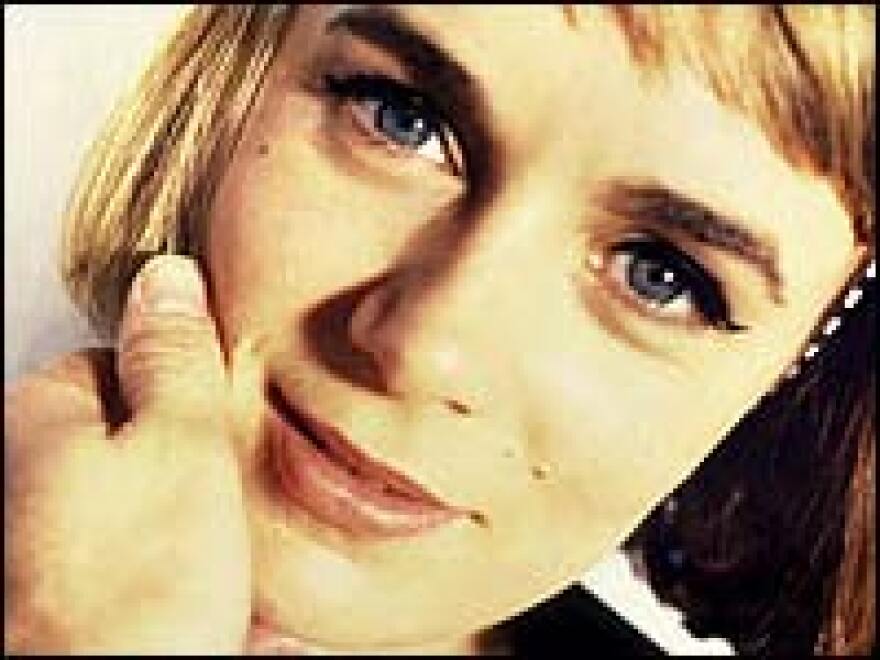Save this for the moment — coming soon! — when the heavy-rotation holiday carols wear out their welcome. "Willows Song," and really all of Isobel Campbell's lovely Milk White Sheets, isn't "seasonal" in the sense of holly and mistletoe, but it radiates tranquility and calm wonder. Listen long enough to its refrain, and it induces a contemplative trance that may make it impossible to shop.
Much of the aura comes from Campbell's off-in-the-cosmos soprano. The former Belle and Sebastian singer has said she deliberately seeks the haunted, melancholic tone of late-'60s British folk, a la Anne Briggs or Nick Drake. "Willows Song" nails that quality, with hand drums and banjo etching out a simple pulse and Campbell's voice off in the middle distance, meandering. There's a reverb-drenched audio halo around her that shimmers as she sings, transforming her lone voice into a gentle wind.
By positioning her vocal well away from the intimate center spotlight (where it sits on other songs here), Campbell encourages a different kind of attention: She lures her listeners past the words, into the sloping melody and the thick swirls of atmosphere around it. The effect is a world apart from the declarative bluntness of her last project: a country-leaning collaboration with Mark Lanegan called The Ballad of the Broken Seas. There, she describes tragic events in (mostly) orderly linear sequence, but here, she conjures a vague yet inescapable feeling of disquiet, and lets that become the story.
Listen to yesterday's 'Song of the Day.'
Copyright 2022 NPR. To see more, visit https://www.npr.org.




